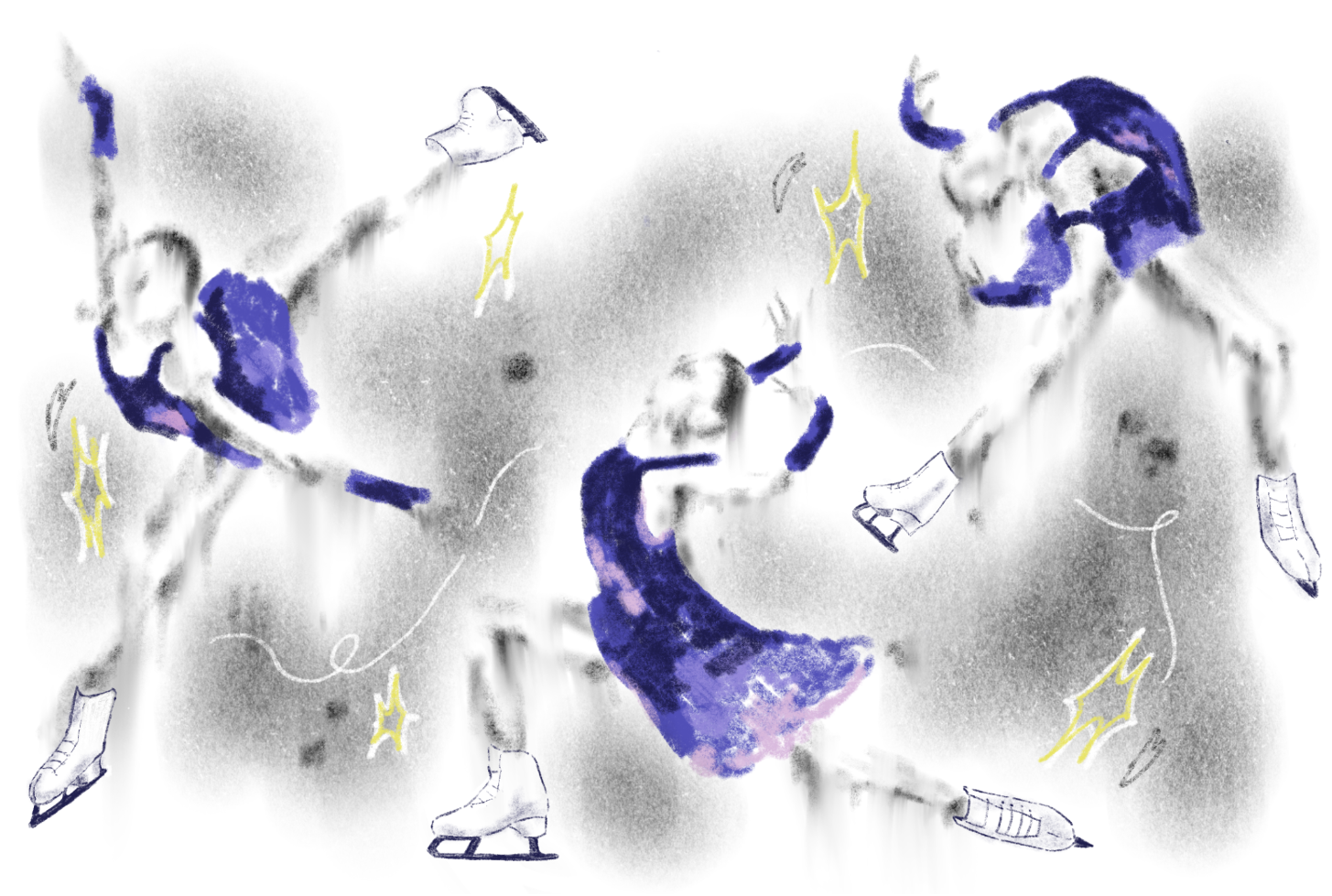A girl of just 15 sobbed on live television while her coach questioned why she hadn’t kept fighting. The silver medalist broke down, repeatedly insisting she would never compete again. And the gold medalist looked despondent on the podium, later describing a feeling of “emptiness inside.” For most Americans, the Olympics are the only time they glimpse the world of international figure skating—and the scene from Beijing this past February did not paint a pretty picture.
Three weeks later, all Russian skaters were banned from international competition due to Russia’s invasion of Ukraine. Although the ban had little to do with figure skating, it has nonetheless proven beneficial to the skating community. It has encouraged a re-evaluation of the sport’s ethics, which had deteriorated under Russia’s control.
February’s podium meltdown was the culmination of years of corruption within the world of international figure skating. Leading up to the games, Russia’s Kamila Valieva, the newest teenage prodigy coming out of star coach Eteri Tutberidze’s club, was the favorite to win the gold medal in women’s singles. Even after testing positive for banned heart medication shortly before the competition, she was ultimately still allowed to compete, provoking international outrage. Meanwhile, pairs skater Jessica Calalang of the United States was watching from home. Calalang had been suspended for eight months after testing positive for a banned substance, but was cleared to compete prior to the Olympics when it turned out that the positive test was due to a cosmetic product. However, she was not able to make up for lost time and ultimately did not make the team. That Valieva was ultimately able to compete while Calalang was not illustrates the extent of Russian corruption in the skating world: Russians are not subject to the same set of rules as everyone else.
Beyond the use of banned, performance-enhancing substances, several commentators and experts have raised questions about Tutberidze’s training methods. They note the extremely short careers of her skaters and the fact that she often has another star lined up for replacement the moment one begins to falter. “In Moscow, it’s more like a factory of production,” said Rafael Arutyunyan, coach of 2022 Olympic gold medalist Nathan Chen. The teenagers in Tutberidze’s camp, commonly known as “Eteri girls,” have repeatedly spoken out about the club’s mandated public weigh-ins and policy of feeding skaters powdered shakes as opposed to solid food. Russia has implicitly endorsed these exploitative practices for years, warranting disciplinary action from the International Skating Union (ISU), if not an outright ban. Yes, “Eteri girls” win medals, but at what cost?
Tutberidze is not alone among her compatriots in resorting to unethical practices to win. At the 2002 Olympics, Alimzhan Tokhtakhounov, a man considered a key figure in the Russian mafia, fixed the outcome of some figure skating events by coercing judges to favorably score Russian competitors. And this was neither the first nor the last instance of Russian corruption in judging: In 2014, Russian Adelina Sotnikova, who never won another major title, received the gold medal over skating legend Yuna Kim of Korea in a scandal widely described as one of the most clear cases of biased judging ever seen. The outrage over Sotnikova’s win was so great that the Italian commentator Silva Fontana repeatedly asked why Russia “had to ruin our sport.”
Despite these controversies, it was not until Russia invaded Ukraine that the ISU moved to ban the country from participating in international figure skating competitions. To many, this response was appropriate given the ties between Russian figure skaters and the Russian government—the government spends millions every year to support its figure skaters. Multiple skaters, including Sotnikova, even organized and attended Putin’s rally in support of the war against Ukraine. But the ban is more than a symbol of opposition to Russia’s invasion—it is also an overdue response to more than 20 years of corruption in judging, doping scandals, and horrific abuse of child athletes by the Russian Federation.
By purging Russia from the sport—even if only temporarily—the ban has transformed women’s skating into a sport for grown and healthy women, not teenagers under immense pressure. The most recent winners of the first four competitions in the Grand Prix series have all been over 20, compared to just one in 2021 and none in 2019. In demonstrating what a healthy and fair vision of skating can look like, the ban also provides an opportunity for the Russian Federation to internally reevaluate whether to continue to allow actors like Tutberidze to dominate the upper echelons of the sport. Ultimately, the ban may serve to protect the sport’s future—both inside and outside of Russia.
[Editor’s Note: This article was published in the Fall 2022 issue of the BPR magazine.]
